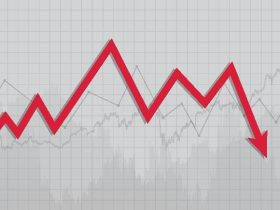Treasury yields were mildly mixed as the recent bond market volatility abated ahead of crucial jobs data at the end of the week.
What’s happening
-
The yield on the 2-year Treasury
BX:TMUBMUSD02Y
fell by 2.9 basis points to 5.042%. Yields move in the opposite direction to prices. -
The yield on the 10-year Treasury
BX:TMUBMUSD10Y
was barely changed at 4.734%. -
The yield on the 30-year Treasury
BX:TMUBMUSD30Y
rose 1.8 basis points to 4.879%.
What’s driving markets
A softer-than-expected ADP survey of the U.S. private sector jobs market, released Wednesday, and a continued slide in oil prices, left benchmark 10-year borrowing costs little changed early in the new session at 4.73%, some 13 basis points down from the fresh 16-year high hit midweek.
The next move in bonds will likely be determined by whether looming labor market data — the weekly initial jobless claims on Thursday, and Friday’s nonfarm payrolls report — match the upbeat JOLTS report from Tuesday, or the ADP data.
Fed speakers Thursday include Cleveland Fed President Loretta Mester talking at the Chicago Payments Symposium at 9 a.m., and San Francisco Fed President Mary Daly making comments at noon in New York.
Ahead of their comments, markets are pricing in an 80% probability that the Fed will leave interest rates unchanged at a range of 5.25% to 5.50% after its next meeting on November 1, according to the CME FedWatch tool.
The chances of a 25 basis point rate hike to a range of 5.50 to 5.75% at the subsequent meeting in December is priced at 33%.
The central bank is not expected to take its Fed funds rate target back down to around 5% until September 2024, according to 30-day Fed Funds futures.
What are analysts saying
Greg McBride, chief financial analyst at Bankrate, alluded to the damage recent rate rises may be doing to the housing market.
“Long-term Treasury yields and mortgage rates have increased at a torrid pace in recent weeks, with the average 30-year fixed rate mortgage rising to a fresh 23-year high of 7.80% in Bankrate’s weekly national survey. As if high home prices weren’t enough, escalating mortgage rates have compounded affordability issues for would-be home buyers,” said McBride.
“The imbalance between the increasing supply of government bonds and the reduced demand as the Federal Reserve and many banks have stopped buying those securities, has pushed long-term bond yields and mortgage rates to levels not seen in many years. It’s not clear how long this dynamic continues pushing bond yields and mortgage rates higher,” he concluded.
Read the full article here













Leave a Reply